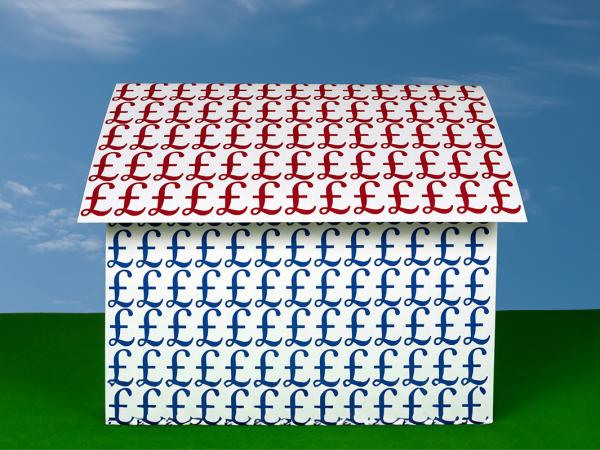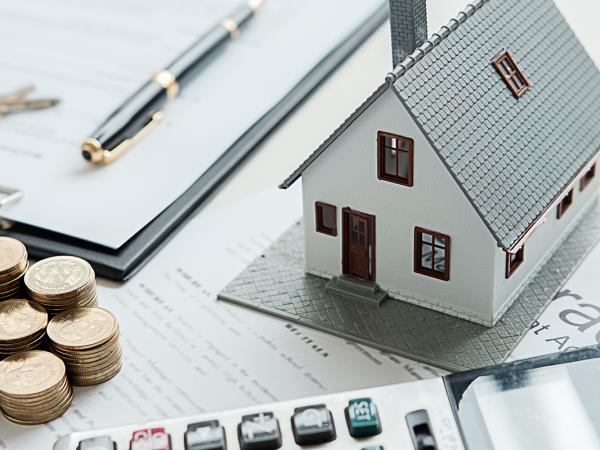Working out property income
On this page, we look at how you calculate your property income for tax purposes – in other words, your profit from renting out property. This includes identifying your income and understanding your allowable expenses, all of which are important when calculating your taxable profit. There are also some complex rules relating to mortgage interest and other finance costs that you need to be aware of.

Content on this page:
Basis of assessment
If you are an individual and your total gross income (rents) from letting out property is less than £150,000, you will normally work out rental profits on the cash basis. However, you can choose to work them out on the accruals basis if you prefer – if so, you need to elect to use this basis on your tax return.
Cash basis
The cash basis means that you take into account gross income (rent) that you have actually received from your tenant during the tax year less expenses that you have actually paid during the tax year.
Accruals basis
The accruals basis means that you take into account the rental income receipts that were due to be paid to you for the period. You also include expenses relating to the tax year, regardless of when they are actually paid.
Allowable expenses
Allowable expenses are basically expenditure (other than capital expenditure, like improvements to the property) incurred ‘wholly and exclusively’ for the purposes of the rental 'business'.
Typical allowable expenses for a rental property include:
- the cost of repairs and renewals which are necessary to maintain the property in a suitable condition to let out. Note that if you spend money on improving a property, such as adding an extension, or have to do work to the property to make it suitable to rent out when you first let it, this is not allowable for income tax purposes (although may be for capital gains tax purposes)
- the cost of insurance
- costs of finding a tenant, such as advertising
- legal costs on the renewal of a letting agreement
- letting agents’ fees, if you use one
- re-decorating
- council tax and water charges
- interest on money borrowed to purchase or improve the property
Note that if you have a repayment mortgage, the amount you pay off the loan balance – the ‘capital’ element – is not an allowable expense. Note, however, that tax relief on interest is restricted and is not deducted from rental profits in the same way as other expenses – we explain this in more detail below.
Replacement items
You can also deduct the costs you actually incur on replacing furnishings, appliances and kitchenware in the property. You can claim relief for a like-for-like replacement, or nearest modern equivalent. You can also claim the costs of disposing of the old asset, although you have to set off anything you receive for the old asset against those costs first. This replacement relief for furnishings is available to all landlords, not just those who let out fully furnished properties.
HMRC’s information for the public on allowable property rental expenses can be found on GOV.UK.
Interest and other finance costs
Tax relief on interest and other finance costs is restricted in relation to residential properties. Tax relief is restricted to the basic rate of income tax.
This means that residential property finance costs are not taken into account when calculating taxable rental profits. Instead, your income tax liability is reduced by a basic rate tax reduction – for most individuals this will be the interest and other finance costs at the basic rate of tax.
The tax reduction is the basic rate of tax (currently 20%) multiplied by the lower of:
- the appropriate proportion of interest and other finance costs
- property profits
- adjusted total income
‘Adjusted total income’ means your total taxable income after deducting personal allowances but excluding savings and dividend income. The tax reduction cannot create a tax refund, so if the reduction is calculated using either of the property profits or the adjusted total income then the difference between that and the finance costs is carried forward to future tax years.
The restriction applies to interest on mortgages, loans and overdrafts and other finance costs.
If you are a Scottish taxpayer, the basic rate of tax used will be the rate set by the Scottish Parliament, but otherwise, the same principles apply.
Deposits
Often a tenant will pay a deposit to the landlord, to cover any potential damage over the course of the tenancy.
You do not include the deposit as income at the time you receive it, because the money is not really ‘yours’ anyway (you will usually have to pay it back if there is no damage or rent arrears at the end of the tenancy) and you have to protect it in a government scheme.
But when the tenant moves out, let us say you agree that you will keep £200 of the deposit for repairing the plaster on the hallway wall, which has been damaged when the tenant was moving furniture. At that point, the £200 you keep is included in your taxable rental income, but the rest of the deposit returned to the tenant is not. The cost of repairing the wall is also an allowable expense, so effectively the two are likely to cancel each other out.
Losses
If you lose money (make a ‘loss’) from renting out a property – that is, your allowable expenses are more than your income – you may be able to take it off a profit from renting out another property, as generally all your rental income in the UK is treated as one ‘rental business’.
Otherwise, the loss will generally be carried forward to the next tax year and deducted against the profit for that year, if you make one.
Selling a rental property or long-term lease
Capital gains tax can arise if you dispose of an asset. That might not be selling it altogether, but it could be giving away part of it or even giving someone a partial interest in a property – which could mean granting someone a ‘lease’ and them continuing to pay you some rent.
The rental rules we explained above assume that you are only letting out property on a short-term basis. If you are granting a let or lease for a longer term – 50 years or more – you will need to consider taking professional advice from a solicitor and a tax adviser.
If the property has ever been your own home, you might qualify for some amount relief from capital gains tax should you sell it. Note that, for disposals after 5 April 2020, the ability to get capital gains tax relief for periods where the property is let is restricted. If you are at all uncertain about this, we would suggest you take advice.



